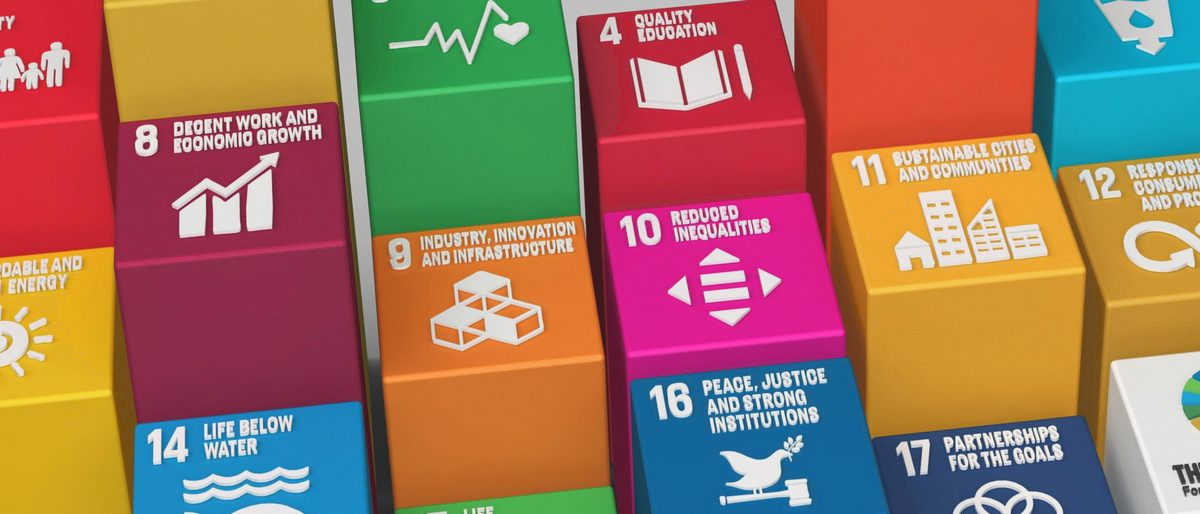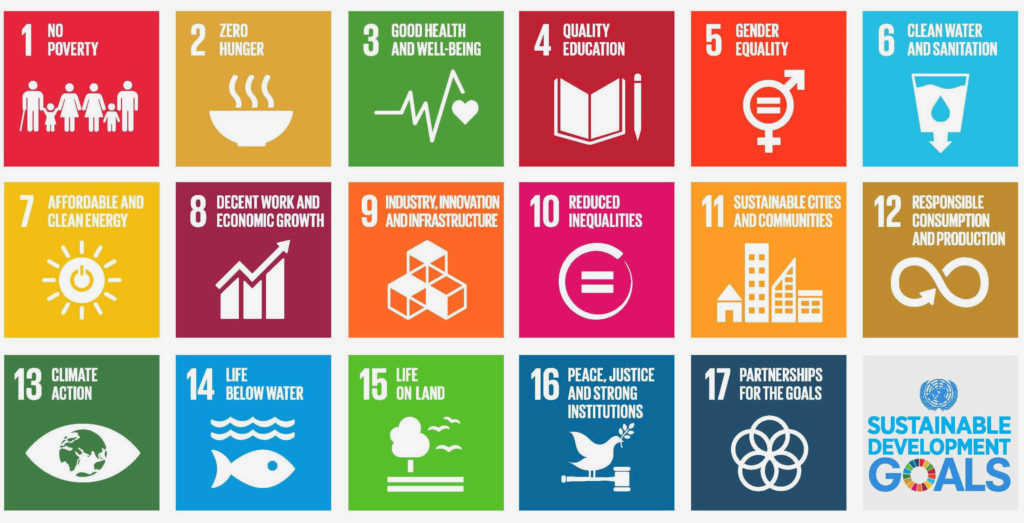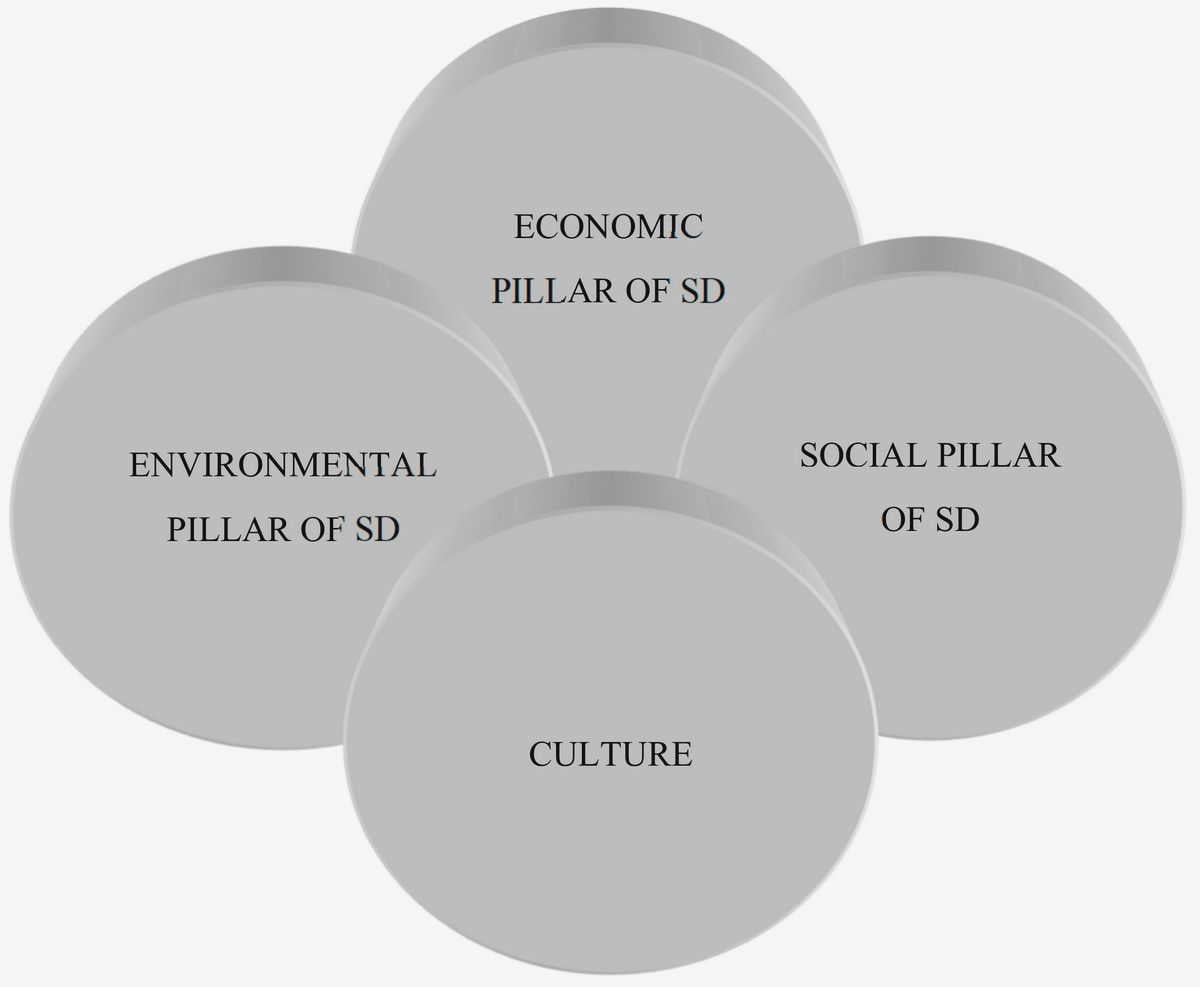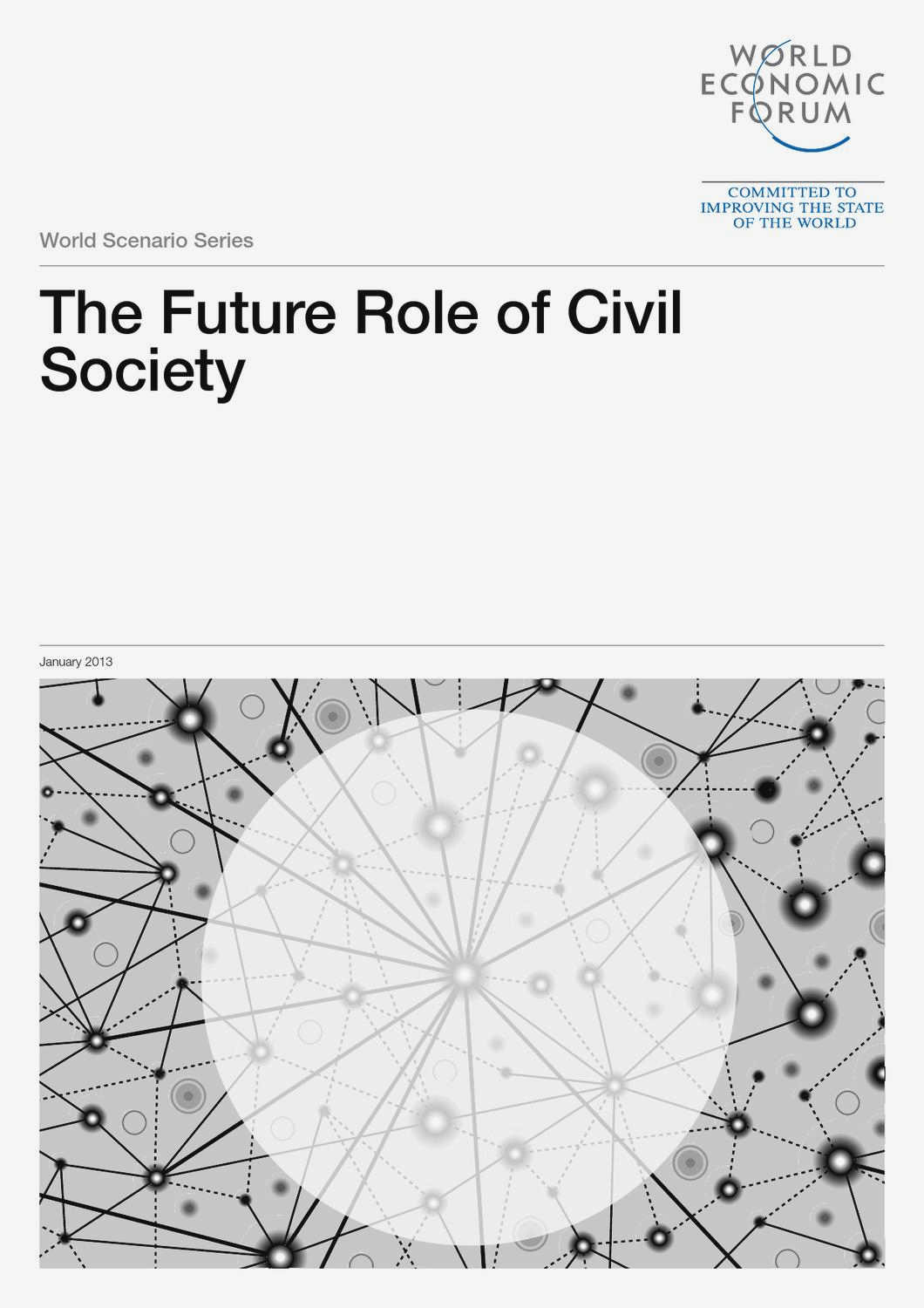Civil society grantmaking plays a crucial role in shaping the future of sustainable development. Through strategic funding and support, civil society organizations have the power to drive positive change, empower marginalized communities, and foster long-term sustainability. This article explores the impact of civil society grantmaking on sustainable development and the ways in which it contributes to creating a more equitable and prosperous future.
One of the key impacts of civil society grantmaking is the ability to address societal challenges and promote sustainable development at the grassroots level. By providing funding and resources to local organizations and communities, civil society grantmaking enables them to implement innovative solutions and initiatives that directly address the needs and priorities of their communities. This hands-on approach ensures that development efforts are tailored to local contexts and are more likely to be effective and sustainable in the long run.
Civil society grantmaking also plays a critical role in promoting social inclusion and empowering marginalized communities. By supporting initiatives that prioritize inclusivity and diversity, civil society organizations can ensure that sustainable development efforts reach all segments of society, including marginalized groups such as women, youth, and ethnic minorities. This not only promotes greater social equity but also fosters a sense of ownership and empowerment among communities, enabling them to actively participate in shaping their own future.
Furthermore, civil society grantmaking has the potential to leverage local knowledge and expertise, contributing to more effective and sustainable development outcomes. By partnering with local organizations, civil society funders can tap into the rich knowledge and understanding of local contexts and leverage their expertise to design and implement impactful programs and initiatives. This collaborative approach not only increases the chances of success but also ensures that development efforts are culturally appropriate and responsive to the specific needs and challenges faced by communities.
In conclusion, civil society grantmaking plays a vital role in shaping the future of sustainable development. By providing strategic funding and support to local organizations and communities, civil society funders contribute to addressing societal challenges, promoting social inclusion, and leveraging local knowledge and expertise. Through their efforts, civil society organizations are creating a more equitable and prosperous future, where sustainable development is a reality for all.
Future Innovation: How Civil Society Grantmaking Drives Sustainable Development
Introduction
Civil society grantmaking plays a crucial role in driving sustainable development by fostering future innovation. Through providing financial support and resources to organizations working towards positive social and environmental change, grantmakers enable the development and implementation of innovative solutions to some of the world’s most pressing challenges. This article explores how civil society grantmaking fuels future innovation and contributes to sustainable development.
Supporting Research and Development
Civil society grantmaking empowers researchers and scientists to pursue groundbreaking ideas that have the potential to transform industries and significantly impact sustainable development. By funding research and development projects, grantmakers enable the exploration of new technologies, methodologies, and approaches that can lead to more efficient and sustainable solutions. These innovations can range from renewable energy technologies to sustainable agriculture practices, all of which contribute to creating a more sustainable future.
Promoting Collaboration and Knowledge Sharing
Grantmaking initiatives often encourage collaboration among different stakeholders, such as researchers, NGOs, and governments, fostering a collective approach to sustainable development. By bringing together diverse perspectives and expertise, grantmakers create opportunities for knowledge sharing, interdisciplinary cooperation, and the exchange of innovative ideas. This collaborative environment stimulates further innovation, providing a platform for the development of comprehensive and impactful solutions.
Fostering Entrepreneurship and Social Innovation
Civil society grantmaking also plays a vital role in empowering entrepreneurs and social innovators who are driving sustainable development forward. By providing funding, mentorship, and access to networks, grantmakers create an enabling environment for individuals and organizations to develop and scale innovative projects and initiatives. These efforts can range from social enterprises addressing environmental challenges to technological advancements that champion sustainable practices. Through their support, grantmakers help foster a culture of entrepreneurship and social innovation, driving sustainable development at the grassroots level.
Conclusion
In conclusion, civil society grantmaking is a catalyst for future innovation and a driving force behind sustainable development. By supporting research and development, promoting collaboration and knowledge sharing, and fostering entrepreneurship and social innovation, grantmakers contribute to the creation of innovative solutions that address global challenges. It is through these concerted efforts that sustainable development and a better future for all can be achieved.
Enhancing Community Empowerment: The Role of Civil Society Grantmaking
The role of civil society grantmaking in enhancing community empowerment cannot be overstated. By providing financial resources to grassroots organizations and initiatives, civil society grantmaking plays a crucial role in supporting communities to address their own unique needs and challenges.
One important aspect of civil society grantmaking is its ability to foster local ownership and participation. By empowering communities to identify and prioritize their own development projects, grantmaking initiatives enable individuals and groups to have a direct say in shaping the future of their communities. This sense of ownership and involvement not only enhances community empowerment, but also ensures sustainability of the projects in the long run.
In addition to fostering local ownership, civil society grantmaking also promotes inclusivity and social equity. By providing funding to marginalized communities and grassroots organizations, grantmakers can help to bridge the gap between different societal groups and ensure that all voices are heard and valued. This is particularly important in the context of sustainable development, as it allows for the participation of those who are often excluded from decision-making processes.
Moreover, civil society grantmaking can contribute to capacity building within communities. By providing financial resources, training, and technical assistance, grantmakers can help to strengthen the skills and capabilities of community members, enabling them to take charge of their own development. This not only empowers individuals and communities, but also creates a ripple effect that can spread to other areas and lead to more sustainable and inclusive development practices.
In summary, civil society grantmaking plays a vital role in enhancing community empowerment by fostering local ownership, promoting inclusivity and social equity, and contributing to capacity building. By supporting grassroots organizations and initiatives, grantmakers empower communities to address their own unique needs and challenges, paving the way for more sustainable and equitable development in the future.
Catalyzing Social Transformation: Grantmaking Initiatives for Lasting Change
In order to create long-lasting and meaningful change in society, it is crucial to support grantmaking initiatives that focus on catalyzing social transformation. These initiatives are designed to address the root causes of social issues and contribute to sustainable development.
One approach to grantmaking for lasting change is to prioritize projects that empower marginalized communities. By supporting grassroots organizations and community-led initiatives, grantmakers can help give a voice to those who have been historically marginalized and enhance the resilience and self-determination of these communities.
Another important aspect of grantmaking for social transformation is the promotion of social justice and human rights. By providing funding to organizations that advocate for equality, justice, and human rights, grantmakers can play a crucial role in creating a more just and inclusive society.
Furthermore, grantmaking initiatives can support projects that focus on capacity building and education. By investing in programs that provide training, education, and skills development, grantmakers can empower individuals and communities to become agents of change in their own right.
Strengthening collaboration and partnerships
In order to maximize the impact of grantmaking initiatives, it is essential to foster collaboration and partnerships between different stakeholders. By bringing together civil society organizations, government agencies, and private sector entities, grantmakers can leverage resources, knowledge, and expertise to address complex social challenges more effectively.
Collaboration can also serve as a platform for learning and sharing best practices. By facilitating exchange and dialogue between different organizations and actors, grantmakers can create opportunities for mutual learning and collective problem-solving.
Ultimately, by focusing on grantmaking initiatives that catalyze social transformation and foster collaboration, grantmakers can contribute to lasting and sustainable change in society. Through strategic funding and support, these initiatives have the potential to create a more equitable, just, and inclusive world for all.
Strengthening Partnerships: Collaborative Grantmaking Strategies for Sustainable Development
Introduction
Collaborative grantmaking strategies play a crucial role in achieving sustainable development goals. By fostering partnerships and pooling resources, organizations can amplify their impact and address complex challenges more effectively.
Building Alliances
One of the key strategies for collaborative grantmaking is building alliances. This involves bringing together diverse stakeholders, including civil society organizations, governments, and private sector entities, to work towards a common vision. By leveraging each partner’s expertise and resources, these alliances can generate innovative solutions and drive sustainable development on a larger scale.
Sharing Knowledge and Best Practices
Effective grantmaking strategies for sustainable development involve sharing knowledge and best practices among partners. This can be achieved through platforms for learning and exchange, such as workshops, webinars, and conferences. By sharing experiences, lessons learned, and successful approaches, partners can enhance their understanding of sustainable development and strengthen their collaborative efforts.
Coordinating Funding Efforts
Collaborative grantmaking also requires effective coordination of funding efforts. This involves aligning priorities, identifying complementary projects, and avoiding duplication of efforts. By coordinating funding, partners can maximize the impact of their resources and ensure that they are directed towards the most pressing and impactful initiatives.
Evaluating and Monitoring Progress
Regular evaluation and monitoring of collaborative grantmaking initiatives are essential for learning and improving strategies. Partners should establish clear indicators and benchmarks to track progress towards sustainable development goals. By regularly assessing their initiatives, partners can identify successful approaches, areas for improvement, and opportunities for scaling up their impact.
Conclusion
Collaborative grantmaking strategies are essential for strengthening partnerships and driving sustainable development. By building alliances, sharing knowledge, coordinating funding efforts, and evaluating progress, organizations can work together more effectively towards a sustainable future.
Fostering Social Justice: The Impact of Civil Society Grantmaking on Equity
Social justice refers to the fair distribution of resources and opportunities in society, ensuring that everyone has equal access to basic needs and opportunities for growth and development. However, achieving social justice is often hindered by systemic inequalities and discriminatory practices. Civil society grantmaking plays a crucial role in fostering social justice and promoting equity by supporting initiatives that address these inequalities.
Addressing marginalized communities:
Civil society grantmaking plays a significant role in addressing the needs of marginalized communities. Grants are often awarded to organizations working with marginalized groups, such as racial and ethnic minorities, LGBTQ+ individuals, and people with disabilities. These grants support initiatives that aim to reduce discrimination and create a more inclusive society, ensuring that everyone has an equal chance to thrive.
Promoting access to education and healthcare:
Access to quality education and healthcare are fundamental rights, yet many communities face barriers in accessing these services. Civil society grantmaking supports initiatives that promote equitable access to education and healthcare. This can include funding scholarships for underprivileged students, establishing community health clinics in underserved areas, and providing resources for healthcare professionals to address the specific needs of marginalized populations.

Advocating for policy change:
Civil society grantmaking also plays a crucial role in advocating for policy change to promote social justice and equity. Grants are often given to organizations working on policy advocacy and research to address systemic inequalities. These organizations work towards influencing policies that promote inclusivity, equal rights, and fair opportunities for all members of society.
Empowering marginalized individuals:
Through civil society grantmaking, marginalized individuals are empowered to bring about change in their communities. Grants are often given to support grassroots initiatives and community-led projects that aim to address social injustices and empower marginalized individuals. These projects focus on building capacity, providing skills training, and supporting entrepreneurship to create economic opportunities and enhance social mobility.
In conclusion, civil society grantmaking has a profound impact on fostering social justice and promoting equity. By addressing the needs of marginalized communities, promoting access to education and healthcare, advocating for policy change, and empowering marginalized individuals, grantmaking initiatives contribute to creating a more equitable society for all.
Promoting Environmental Stewardship: Grantmaking Efforts for a Sustainable Planet
Investing in Renewable Energy
One of the key areas in grantmaking efforts for promoting environmental stewardship is investing in renewable energy. By supporting projects that focus on renewable sources such as solar power, wind energy, and hydroelectricity, grantmakers contribute to the development of a sustainable planet. These initiatives not only reduce greenhouse gas emissions but also help in conserving non-renewable resources for future generations.
Protecting Biodiversity
Grantmaking efforts for promoting environmental stewardship also include projects that aim to protect biodiversity. By supporting conservation initiatives, grantmakers play a crucial role in preserving ecosystems and preventing the loss of species. This involves funding projects that focus on habitat restoration, wildlife protection, and conservation research, ensuring the long-term viability of diverse ecosystems.
Encouraging Sustainable Agriculture
Sustainable agriculture is another area where grantmaking efforts can have a significant impact on promoting environmental stewardship. By funding projects that promote organic farming practices, agroforestry, and sustainable irrigation systems, grantmakers support the development of a food production system that is environmentally friendly and economically viable. These initiatives also contribute to soil conservation, water conservation, and reduction in the use of chemical pesticides and fertilizers.
Advancing Waste Management Solutions
Grantmaking efforts for promoting environmental stewardship also focus on advancing waste management solutions. By supporting innovative projects that aim to reduce waste generation, promote recycling and composting, and develop sustainable waste disposal methods, grantmakers contribute to the reduction of pollution and the preservation of natural resources. These initiatives also raise awareness about the importance of responsible waste management among communities and encourage behavioral changes towards more sustainable practices.
Collaboration and Partnerships
Effective grantmaking efforts for promoting environmental stewardship require collaboration and partnerships between grantmakers, civil society organizations, and other stakeholders. By fostering collaboration, grantmakers can leverage their resources and expertise to maximize the impact of their funding. This includes partnering with government agencies, research institutions, and local communities to develop holistic solutions that address environmental challenges and promote sustainable development.
Overall, grantmaking efforts for promoting environmental stewardship play a crucial role in creating a sustainable planet. By investing in renewable energy, protecting biodiversity, encouraging sustainable agriculture, advancing waste management solutions, and promoting collaboration and partnerships, grantmakers contribute to the development of a global society that values and protects the environment for future generations.
Addressing Global Challenges: Civil Society Grantmaking in the Age of Innovation
The world is facing numerous global challenges that require innovative solutions. These challenges range from climate change and environmental degradation to poverty and inequality. In order to effectively address these challenges, civil society organizations have a crucial role to play. Through their grantmaking efforts, they can support and empower local communities, encourage innovation, and drive sustainable development.

One of the key aspects of civil society grantmaking in the age of innovation is the emphasis on collaboration and partnership. In today’s interconnected world, no single organization or sector can tackle global challenges alone. By fostering partnerships between civil society organizations, governments, private sector, and academia, grantmakers can leverage resources, knowledge, and expertise to achieve greater impact.
In addition to collaboration, civil society grantmaking in the age of innovation also involves embracing new technologies and approaches. Technology has the power to transform the way we approach and solve global challenges. Whether it is through the use of artificial intelligence, blockchain, or data analytics, innovative technologies can enable more efficient and targeted grantmaking, as well as facilitate monitoring and evaluation of projects.
Moreover, civil society grantmaking in the age of innovation also requires a shift in mindset. Grantmakers need to be open to new ideas, take risks, and support unconventional approaches. This includes funding grassroots organizations and individuals who are often at the forefront of innovation and are best positioned to understand local needs and context.
Overall, civil society grantmaking in the age of innovation holds immense potential to address global challenges and drive sustainable development. By fostering collaboration, embracing technology, and being open to new ideas, grantmakers can make a lasting impact on the world and shape a better future for all.

Advancing Education Opportunities: Grantmaking Initiatives for Knowledge Empowerment
Education is a fundamental building block for individual empowerment and social development. In order to advance education opportunities and promote knowledge empowerment, civil society organizations are investing in grantmaking initiatives that aim to address the various challenges faced by educational systems worldwide.
Supporting Access to Education
One key focus of grantmaking initiatives is to support access to education for marginalized and underprivileged communities. Grants are provided to organizations that work towards eliminating barriers such as poverty, gender inequality, and disability that hinder access to quality education. These initiatives aim to ensure that every individual, regardless of their background, has equal opportunities to acquire knowledge and skills.
Improving Quality of Education
In addition to enhancing access to education, grantmaking initiatives also aim to improve the quality of education provided. Grants are allocated to organizations that focus on teacher training, curriculum development, and the provision of learning resources. By investing in these areas, civil society organizations strive to empower educators with the necessary skills and tools to deliver effective teaching methods and foster a conducive learning environment.
Promoting Innovation in Education
Grantmaking initiatives also encourage innovation in education by funding projects that leverage technology and new approaches to teaching and learning. Organizations receive grants to develop and implement innovative educational models, such as online learning platforms, mobile applications, and interactive learning tools. These initiatives aim to enhance engagement, accessibility, and effectiveness in education, ultimately empowering individuals with the knowledge and skills needed for the future.
In conclusion, grantmaking initiatives play a vital role in advancing education opportunities and promoting knowledge empowerment. By supporting access to education, improving its quality, and promoting innovation, civil society organizations contribute towards a sustainable and inclusive education ecosystem that empowers individuals and drives social progress.
Driving Economic Progress: How Civil Society Grantmaking Spurs Sustainable Growth
Promoting Entrepreneurship and Innovation
Civil society grantmaking plays a crucial role in driving economic progress by promoting entrepreneurship and innovation. Through funding initiatives that support aspiring entrepreneurs, civil society organizations empower individuals to start their own businesses and contribute to the local economy. Grant programs can support training and mentorship programs, providing aspiring entrepreneurs with the skills and knowledge they need to succeed. By fostering a culture of innovation and entrepreneurship, civil society grantmaking helps create a thriving business ecosystem that fuels sustainable growth.
Supporting Small and Medium Enterprises
Small and medium-sized enterprises (SMEs) are the backbone of many economies, providing employment opportunities and contributing to economic stability. Civil society grantmaking can provide much-needed financial support to SMEs, helping them grow and expand. Grants can be used to fund business development activities, such as market research, product development, and marketing strategies. By supporting SMEs, civil society grantmaking helps create a vibrant and diverse economic landscape, driving sustainable growth and long-term prosperity.
Investing in Sustainable Industries
Civil society grantmaking plays a crucial role in driving economic progress by investing in sustainable industries. Grants can support projects and initiatives that promote renewable energy, sustainable agriculture, and green technologies. By directing funding towards these sectors, civil society grantmaking encourages the transition towards a more sustainable and environmentally friendly economy. Not only does this drive economic growth, but it also helps address pressing environmental challenges and contributes to a more resilient and sustainable future.
Promoting Social Equity and Inclusive Growth
Civil society grantmaking contributes to economic progress by promoting social equity and inclusive growth. Grants can be directed towards initiatives that support marginalized communities, providing them with access to education, healthcare, and economic opportunities. By empowering marginalized groups and reducing inequality, civil society grantmaking helps create a more inclusive and equitable society. This, in turn, drives economic progress by ensuring that everyone has the opportunity to participate in and benefit from the economy, leading to sustainable and balanced growth.
Supporting Health and Well-being: The Influence of Grantmaking on Sustainable Communities
1. Improving Access to Healthcare
Grantmaking plays a crucial role in improving access to healthcare in sustainable communities. By providing financial support to healthcare organizations, grants can help them enhance their medical infrastructure, equip them with advanced medical technology, and ensure the availability of quality healthcare services for residents. This can include building new healthcare facilities, establishing mobile clinics to reach remote areas, or providing training for healthcare professionals to improve their skills and knowledge.
2. Promoting Preventive Healthcare
Grantmaking can also have a significant impact on promoting preventive healthcare in sustainable communities. Grants can support initiatives focused on raising awareness about the importance of regular health check-ups, vaccinations, and healthy lifestyle choices. These initiatives can include organizing community health campaigns, distributing informational materials, or hosting workshops and seminars. By emphasizing preventive measures, grantmaking can contribute towards building healthier and more resilient communities.
3. Addressing Social Determinants of Health
Grantmaking can address the social determinants of health, which are the conditions and factors that influence an individual’s well-being. Grants can support organizations working to improve housing conditions, provide access to clean water and sanitation facilities, and address food insecurity. By addressing these social determinants, grantmaking can help create a more equitable and inclusive society, where everyone has the opportunity to live a healthy and fulfilling life.
4. Supporting Mental Health Services
Grantmaking can also play a vital role in supporting mental health services in sustainable communities. Grants can fund the establishment of mental health clinics, the training of mental health professionals, and the development of support programs for individuals facing mental health challenges. By prioritizing mental well-being, grantmaking efforts can contribute to the overall health and resilience of communities.
In conclusion, grantmaking has a significant influence on supporting health and well-being in sustainable communities. Through funding initiatives focused on improving access to healthcare, promoting preventive healthcare, addressing social determinants of health, and supporting mental health services, grantmakers can contribute to building healthier and more resilient communities for all.
Empowering Marginalized Communities: Civil Society Grantmaking as a Catalyst for Change
In today’s society, marginalized communities often face significant challenges and barriers to success. They experience limited access to resources, opportunities, and decision-making processes that affect their lives. Civil society grantmaking can play a crucial role in empowering these communities, providing them with the necessary resources and support to overcome these obstacles and create positive change.
One of the key ways in which civil society grantmaking empowers marginalized communities is by addressing their specific needs and priorities. These grants are often tailored to support initiatives that directly benefit these communities, such as educational programs, healthcare access, income-generation projects, and advocacy efforts. By focusing on the unique challenges faced by marginalized groups, civil society grantmaking ensures that resources are directed towards initiatives that can make a real difference in their lives.
Another important aspect of civil society grantmaking is its capacity to build the capacity of marginalized communities. These grants not only provide financial support but also offer training, mentorship, and technical assistance to community-based organizations and individuals. This capacity-building approach enables communities to develop the skills, knowledge, and networks necessary to address their challenges effectively and sustainably.

Furthermore, civil society grantmaking can help amplify the voices of marginalized communities. By supporting initiatives that promote civic engagement and advocacy, these grants enable communities to advocate for their rights, challenge discriminatory practices, and influence policy and decision-making processes that directly impact their well-being. This empowerment allows marginalized communities to take an active role in shaping their own future and creating a more inclusive and equitable society.
Overall, civil society grantmaking serves as a catalyst for change in empowering marginalized communities. It provides them with the necessary resources, builds their capacity, and amplifies their voices, enabling them to overcome barriers and achieve sustainable development. By investing in these communities, civil society grantmakers can contribute to a more just and inclusive society for all.





